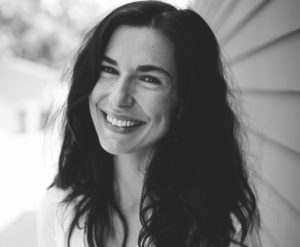 Kathryn Savage’s “Lesser Missiles” grabbed us from the first, spare, and startling sentences. Whenever this happens, we might cross our fingers and tense up a little, carried away by the momentum of the story but still conscious that we are rooting for the narrative to sustain that opening power, to not let us down. Kathryn’s story succeeds beautifully, and its final moments deliver us gently, without apology, to the vastness of our own vulnerabilities.
Kathryn Savage’s “Lesser Missiles” grabbed us from the first, spare, and startling sentences. Whenever this happens, we might cross our fingers and tense up a little, carried away by the momentum of the story but still conscious that we are rooting for the narrative to sustain that opening power, to not let us down. Kathryn’s story succeeds beautifully, and its final moments deliver us gently, without apology, to the vastness of our own vulnerabilities.
Erin McReynolds: This story has that wonderful kind of specificity that makes it feel autobiographical, even if it’s not—do you mind divulging which elements of this story come to you from real life?
Kathryn Savage: Thank you! I hope the voice feels like a particular consciousness. The voice isn’t autobiographical, but I hope it’s concrete. One of the things I love about first-person narrators is that feeling of the personal. I also really care about details. There’s that great James Joyce response to the painter Patrick Tuohy, after Tuohy said he wanted to capture Joyce’s soul in his portrait, Joyce replied: “Never mind about my soul, just make sure you get my tie right.”
That said, I have been to Oxnard. One night, years ago, I crashed an astronomy class. The bit of dialogue about the asteroid strike is almost exactly taken from life. When the professor said, One day an asteroid will come, his tone was tender and unexpected. I’m interested in the surprising ways people reveal themselves and their emotions, whether it’s through what they notice or remember or a certain tone of voice. So this image stayed with me for a long time.
EM: I think one of the things you get so right in “Lesser Missiles” is the aftermath of loss being similar to a catastrophe like an asteroid collision—what do you make of her choices, like Jessie, the job as a baggage handler, and her denial of the scientist who wants to marry her?
KS: In “Lesser Missiles,” she’s waiting for her husband to come back but he doesn’t. Then what? became the question that propelled me, and, also, where do the emotions of loss reside in the present, and how are the missing people that can’t be reclaimed affecting the character now? I’m interested in aftermath not as a situation or consequence but as an emotional state of being. I wanted to stay with a character inhabiting a very specific moment in her life.
Also, when I was researching, because I began writing knowing nothing about asteroids, I got pretty heavy into following this NASA blog about near-Earth objects. It turns out, asteroids are constantly almost hitting something but then they burn off before they actually pose a threat. The idea of collisions, near misses, threats that burn off and disappear, almost catastrophe, feels important to this story. I just finished reading Carlos Rovelli’s Seven Brief Lessons on Physics, which is fantastic, and almost every lesson on physics could just as easily be a metaphor for human interaction. One of the challenges with this story was not turning science into blunt metaphor for love and destruction.
EM: How do you think the world is going to end?
KS: I would love for it to never end! But I worry about global warming.
EM: What are you working on now?
KS: I’m working on a short-story collection and I recently started a novel based on this story.
EM: What are you inspired by/reading these days?
KS: I recently read, and loved, Garth Greenwell’s What Belongs to You. It’s such a gorgeous book about the complexity of desire and the places and people with whom we are more ourselves. I’m deeply interested in characters and situations that serve as a kind of permission or opening to the world. These situations are always imbued with potential and risk, I think, and Greenwell’s Bulgaria is so alive and vulnerable. I also recently read and loved Colin Barrett’s Young Skins, The Darkening Trapeze by Larry Levis, Ocean Vuong’s Night Sky with Exit Wounds. Mona Awad. Somlaz Sharif. How much time do you have?
Kathryn Savage‘s writing has appeared in The Guardian, Poets & Writers, and The Best Small Fictions of 2015 among others. Her work has been supported by fellowships and scholarships from the Bread Loaf Writers’ Conference, Napa Valley Writers’ Conference, Minnesota State Arts Board, Millay Colony, Ucross Foundation, and Vermont Studio Center.